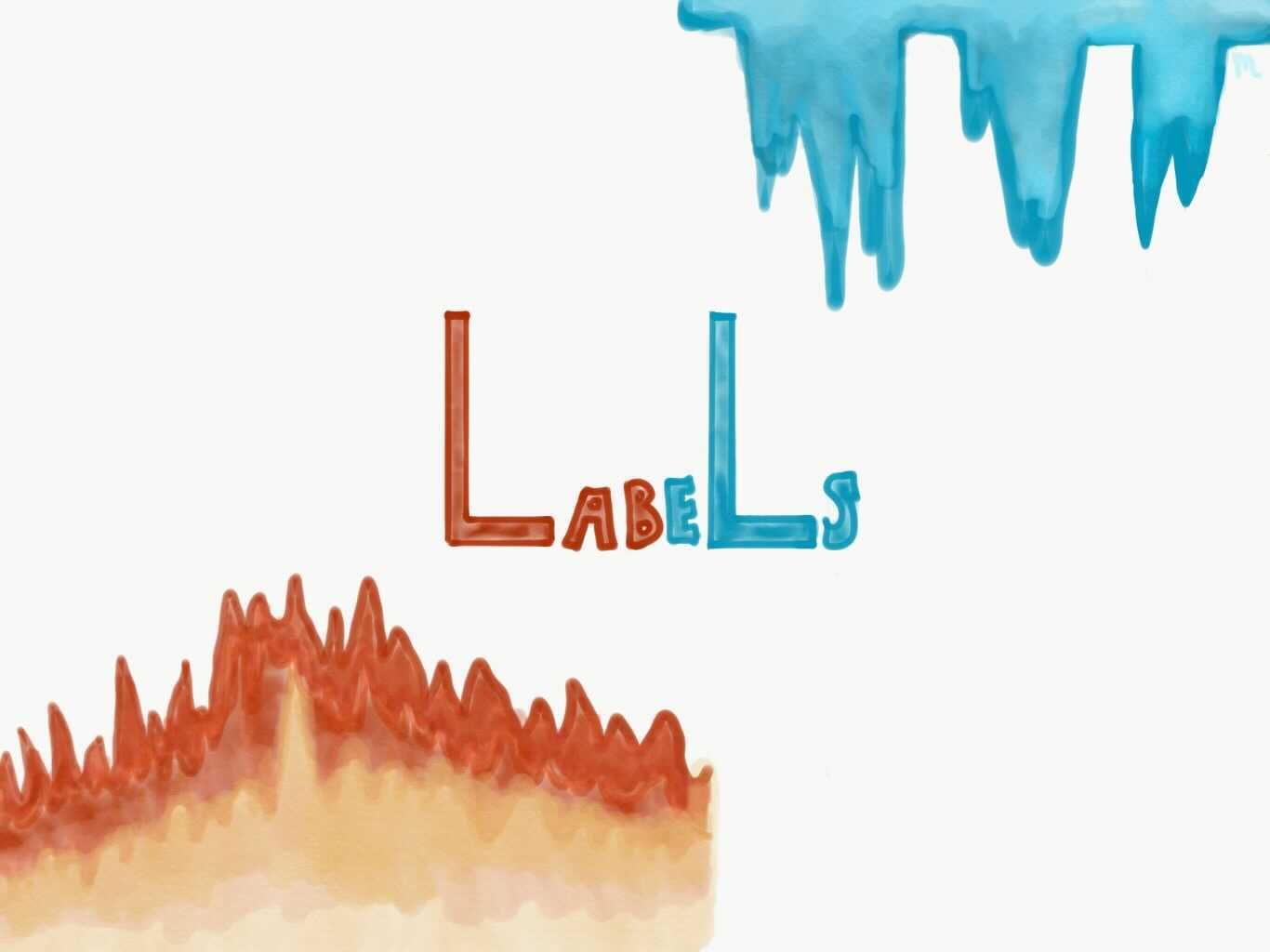
Humans are hard-wired for dichotomous thinking, or thinking about things in terms of binary opposites without acknowledging everything in between. Good and bad, black and white, us and other — I could go on forever. From an evolutionary perspective, it makes sense: In order to survive, we had to determine which things would be beneficial or harmful. But these days, the world is so much more complex than that, and confining our worldview to a binary schema erases all the gray areas in between.
Specifically, I’m here to talk about using the labels of “good” and “bad.” Morals are relative to each society and every individual, meaning your definitions of good and bad are going to be different from everyone else’s. That means defining things — and people — as solely good or bad overlooks a lot of their complexities.
Take the weather. We all do it. Labelling things like the weather as good or bad depends on how convenient it is for you. Cold weather is bad. Warm weather is good. Rain is bad. Sun is good. But weather wasn’t invented for humans, and not all humans feel the same way about it. Here’s an example: The recent warm weather might be seen as “good” because you’re tired of winter, but that ignores the reality that it’s a direct result of climate change.
Looking at the world as how it solely relates to you and your feelings allows you to ignore other perspectives. Just because something is good for you doesn’t mean it’s good for someone else. Along the same line of thinking, just because something is good for humans doesn’t mean it’s good for other species.
Now, let’s talk about people. We are all incredibly complex. Everyone has good and bad in them. We have to take so many things into account when we judge a person, and labelling everyone as only good or only bad leaves a lot unsaid.
Just to be clear, I’m not making the argument that we should only see the good in people, or that we should look past “bad” actions or words. I suppose this is where some of you will think of cancel culture, and like everything else, there’s good and bad in that. I do think we should allow people to apologize for genuine mistakes, depending on their severity, but a lot of people who have been “cancelled” have done more irreparable harm than good.
I can’t really speak of modern internet-related cancel culture because I’m not on social media, but I can speak to it in a historical context. History is littered with controversial historical figures: Thomas Jefferson (along with every other American president), Mother Teresa and Gandhi are the people who come to my mind. Thomas Jefferson was a person who did a lot of good and bad things. So was Mother Teresa and Gandhi. No one should be unequivocally worshipped like the people listed above; they are human, and all humans are a mix of good and bad. As such, we should talk about them like people who do good and bad things — such as using person-first language when we talk about actions, too.
One could argue that if someone has done more bad than good, they should be labelled as bad. That mentality can go too far way too fast and lead some of us to “cancel” everyone who’s made one ignorant comment on social media. For dead people, we have to accept and talk about them as human, but for the living, we have to acknowledge their capacity to recognize their harmful actions and change.
As for ourselves, a lot of us judge the things we do as good and bad as well. We define our habits as good and bad (and I say habits as in our daily activities, not actions that are directly harmful). I have a bad habit of staying up till 3 a.m. I have a good habit of doing my work the day it’s assigned. The list goes on and on. If morals are relative to society, we’re simply confining ourselves to society’s norms as opposed to doing what we truly want to. Thinking of our habits in terms of good and bad allows us to generalize our habits to our whole selves, which can lead to low-self esteem and self-worth.
Humans like simplicity. We would all love it if everything were black and white, predetermined for us. But we all need to be more comfortable with gray areas. What we get when we reduce people down to good and bad is a just a shell of who they truly are. Nobody can be defined by any one thing, so we can’t call entire people “good” or “bad.”
This thinking is something I’m still trying to get better at. It’s a work in progress, just like I am, and just like all the rest of you are. All we can do is be conscious of how we label people and things, and if we are able to stop labelling things as entirely “good” and “bad,” we’ll be able to see more sides to each story and appreciate more of the complexities of our world.
Mia Merchant is a first-year in the Explore Program. She can be reached at [email protected]
"bad" - Google News
March 19, 2021 at 07:05AM
https://ift.tt/3lwiG9O
Column: Acknowledging the good and bad in everything - The Huntington News
"bad" - Google News
https://ift.tt/2SpwJRn
https://ift.tt/2z7gkKJ

No comments:
Post a Comment